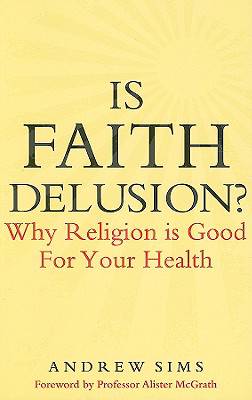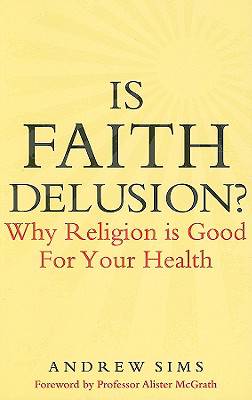
- Retrait gratuit dans votre magasin Club
- 7.000.000 titres dans notre catalogue
- Payer en toute sécurité
- Toujours un magasin près de chez vous
- Retrait gratuit dans votre magasin Club
- 7.000.0000 titres dans notre catalogue
- Payer en toute sécurité
- Toujours un magasin près de chez vous
43,95 €
+ 87 points
Description
Is faith delusion? Is religion bad for your health? How, in a scientifically and technologically advanced age, can people still believe in God/spirit/'other'? Clearly not all believers are primitive and ill-educated; an alternative explanation is that they must be mad, or at least severely neurotic (as suggested by Freud).
This book starts by looking at, and giving reasons for, the connection and the division between Christian faith and psychiatry. It asks whether science challenges Christians involved with psychiatry, as patients or professionals, and whether the spiritual needs of patients are recognised. The author examines the scope and use of the neuro-sciences and considers cause and effect, natural selection and determinism. He explores the overlap (and the difference) between psychiatric symptoms and religious belief, the possible association between demon possession and mental illness, and the idea that some people are intrinsically religious and some are not. The variations of personality are examined, with their implications for belief.
Posited as a statement, that faith is delusion is always hostile, but outcome studies (reviewed here) show that in general religious belief and practice convey good mental health. Religious faith and mental illness are different, and their concepts come from different world-views. A consideration of them in relation to each other is long overdue.
The author is a former Professor of Psychiatry and President of the Royal College of Psychiatrists, and has also been Chairman of their Spirituality and Psychiatry Special Interest Group, so is exceptionally well qualified to address the subject. Although the book is technically proficient, it is aimed at the general reader and is illustrated with stories, brief case histories and anecdotes.
Spécifications
Parties prenantes
- Auteur(s) :
- Editeur:
Contenu
- Nombre de pages :
- 252
- Langue:
- Anglais
Caractéristiques
- EAN:
- 9781847063403
- Date de parution :
- 09-05-09
- Format:
- Livre broché
- Format numérique:
- Trade paperback (VS)
- Dimensions :
- 135 mm x 213 mm
- Poids :
- 340 g

Les avis
Nous publions uniquement les avis qui respectent les conditions requises. Consultez nos conditions pour les avis.






